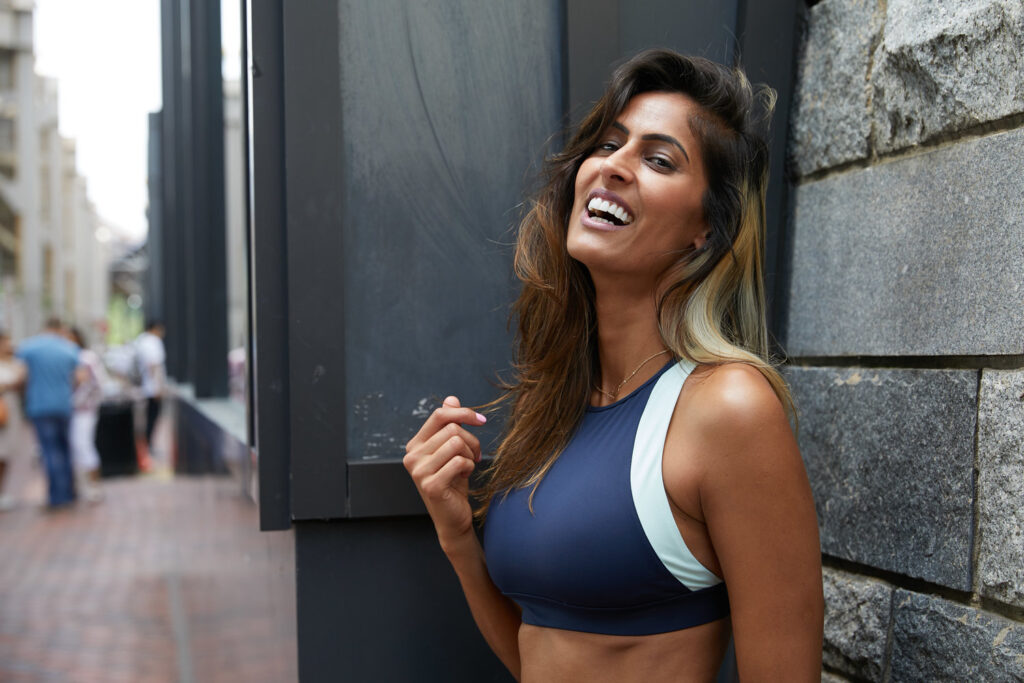
Punita Mangat is a health educator and wellness coach who radiates positivity and is the embodiment of what it means to live fearlessly in your truth. Punita is a certified mindfulness yoga teacher and personal trainer with an emphasis on mental health and leadership. In addition, she is a writer, fitness influencer and a practicing registered dental therapist. Her mission is to improve mental health and wellness standards by giving you the tools to live your best life. Follow Punita @thrivehigherdaily on Instagram and read on to learn more about her incredible journey.
The Beginning
“I was born in New Delhi. Growing up, I saw firsthand the suppression, mistreatment, and sexist attitudes towards women in my community. As a little girl, it didn’t sit right with me that this was considered a normal way of living. So I’d keep asking my parents questions and try to understand where these cultural norms were coming from.
I was enrolled in a disciplinary boarding school to facilitate my thoughts with everyone else regarding culture but I continued to notice the differences between how boys and girls were treated. I ended up starting a little revolution at the school, where I got all the girls to speak with their parents and write a collective letter against the treatment of women and girls. It was hilarious, and I almost got suspended at the end. I think this was really the start to how I thought about all these things later on in my life. It was pretty much the beginning of something radical that you have to say what’s right, not what’s safe.”
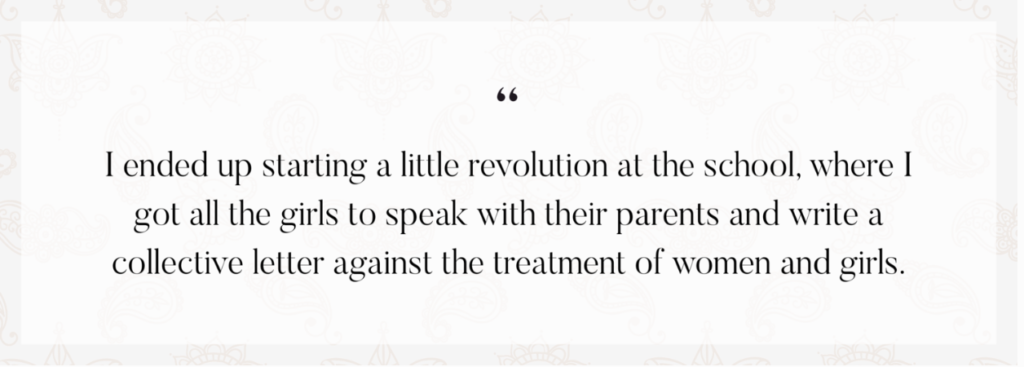
“We moved to Canada when I was 11, and even there, I noticed many of the same stigmas and attitudes. Some of these issues were even exacerbated in Canada because we were a minority community, creating identity crises as we balanced our Canadian and Indian identities.
This is where my activism journey really started. People were afraid and embarrassed to talk about everything from marriage to family expectations – everything was brushed under the rug and people pretended like it didn’t exist. So I just said I’m going to start talking about everything, and started having open discussions with others in our community.
Brown Girl Mag reached out to me one day and asked me to write a piece on my fitness journey and experiences. So I did, and I started getting feedback from women around the world saying we need more of this. The journey since then has been amazing. I never thought I would be here as a voice for those who can’t speak for themselves.”
Her Wellness Journey
“I got my undergraduate degree in public health. I knew I wanted to help people and I also loved studying the human body. I’m now an integrated dental therapist, and I’ve added wellness and yoga to my practice. I have bigger aspirations for my practice to branch into corporate engagements and continue to incorporate more wellness techniques.
I never really had any role models in fitness growing up. Everyone would go for walks, but that was about it. Fitness was not something that was instilled in me, and I found it through a low point in my life when I went through a divorce. Fitness became my therapy, and I realized that a lot of women dealing with mental illness or emotional struggles can look at fitness as a way to get through all of that. Today, I really focus on the mental aspect of exercise as much as the physical aspects.”
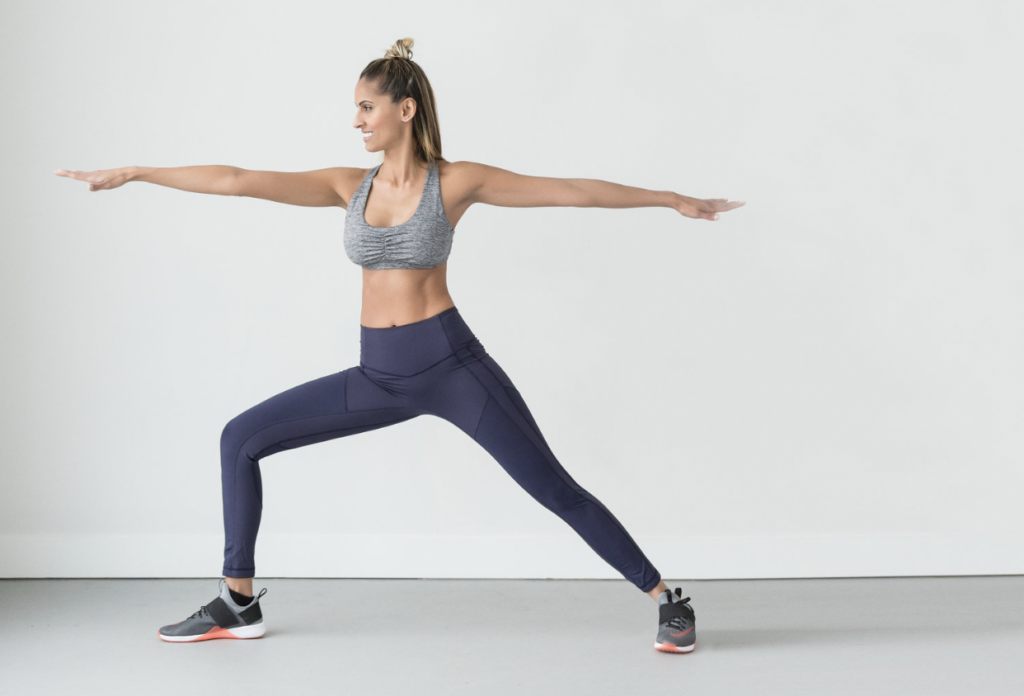
“When I coach clients, I help them find that radical level of acceptance and happiness that comes out of knowing we are all in this together. Yes, I have leadership qualities, but I always tell everyone else that we are all in this together and we are all learning. I also love inspiring more confidence in my clients. When I started embarking on this journey, I saw how much confidence it gave me when I started taking care of my body and my mind. It’s important to work out for the feeling you get after, not for what you could look like.
I recently got featured in Strong Fitness Magazine as one of the “Women to Watch out For.” I was the first of two Indian women in ten years to have gotten featured. As surprised as I was, I am grateful for the opportunity to represent my community and I hope that we can continue to improve representation of women in the fitness world. I still see sexism towards women in the fitness space. A woman in a gym is unfortunately going to get harassed. The license people feel they have as soon as a woman puts on a sports bra and leggings is just insane. I didn’t put these on for you, it’s for me to work out. The effect of all of this is that women often feel uncomfortable going to the gym now and it sucks. I’m definitely trying to change that.”
Transforming Health and Fitness in the South Asian Community
“As South Asians, fitness is not something most of our parents grew up with. The South Asian community has the highest rate of heart disease and diabetes compared to most other communities, and it’s primarily due to sedentary lifestyles and high carb diets. This alone is enough to compel me to inspire and empower others to change their lifestyle. We all have to harness the power we have to live healthier.
I find that a lot of South Asian women also feel selfish for taking time to take care of themselves. We’re supposed to make rotis, take care of the kids, or clean the home – and taking care of ourselves becomes a lower priority. The reality of it is that women are getting burnt out. We deserve happiness too and need to enjoy our lives. If we are healthy, we can do more for others.
I’m also a huge advocate for prioritizing mental health. The culture of suppression in the South Asian community has prevented a lot of people from sharing openly. The number of times I’ve heard people say “well Indian people don’t get depression” is too many to count. We have to talk about it – it can be tough and awkward, but just because we suffer from something doesn’t mean we are broken. The more of us who stand up and show that we are still beautiful, normal people, the more others will start to find openness too.”
Her Daily Rituals

“Honestly, the way I get through overwhelming periods of stress is by prioritizing. I have a to-do book to write things down. There’s just something about writing down what you have to do for the day or for the week and then tackling it that’s so satisfying. There’s no way you’re going to cancel a doctor appointment, so treat the rest of your life the same way. Make appointments with yourself and carve out specific windows of time. This has helped me set a pattern that is now a lifestyle.
My morning ritual is also so key to how I lead the rest of my day. I never look at my phone when I first wake up. It took me years to get to this point, and I cannot stress this enough. I start my day listening to a mindfulness podcast while doing my mini yoga session in bed. It takes five minutes, and it’s just my time to check in with my body and appreciate the life I have. Now that I’ve done this routine for so long, it’s automatic and makes such a big difference.
At night, I drink a cup of tea and write down five things that went well in my day and made me smile. Over time that adds up, and you realize you have a lot to look forward to in life. That practice stops the self negative talk and turns it into self compassion. I really believe in thriving, not surviving.”
On Building Community
“There are so many South Asian women I look up to. I love Deepica Mutyala and the Tinted family she has built. Payal Kadakia has also been a great influence – it’s empowering to see how she’s made her way through such a tough industry and created her own company. Trisha Tsakhuja-Walia of Brown Girl Mag has also been amazing. I’ve seen how she’s worked very hard to create a space for us to come together as South Asian women.
What I’ve realized the most is that nobody is alone. We all have people who are helping us and encouraging us. Collaboration is so powerful, and something that is often lacking in the South Asian community. However, it’s definitely changing. It’s so great to finally see women getting together and supporting each other.
If you’re building a community or movement, you’ve got to be a bit ballsy and reach out to others you want to work with. The answer will always be no until you ask. Pitch ideas. Hone in on your niche and do whatever comes naturally to you so it doesn’t feel like work. If you think someone out there is already doing what you’re doing, realize that you are different. You’ll create your own audience and people will be drawn to your authenticity.”
On Love and Marriage
“I 100% faced the typical pressures around marriage that South Asian women do. My parents were your typical traditional parents, and they brought in prospects whom they wanted me to sit down with. They didn’t take my love for my white boyfriend seriously, and thought it was just a phase.
For our parents who had arranged marriages, the mentality was that love comes later, post marriage. And I understand they were raised like that but I knew very early on that an arranged marriage wasn’t for me. Finding someone you like is way more important. I was very vocal about that early on, and I actually did something very daring. I moved out when I was 19, which was very scary at the time. My parents didn’t speak to me for six months. They were very upset, but I kept my ground. I knew this was important for me to find my own identity and that if I stayed home I’d lose a grasp over who I was. Eventually, my parents understood and came around. I am so grateful and thankful for that because some aren’t so lucky to experience such acceptance. That paved the way for my younger sister, and now I have so many friends in interracial marriages who are living happy lives.”
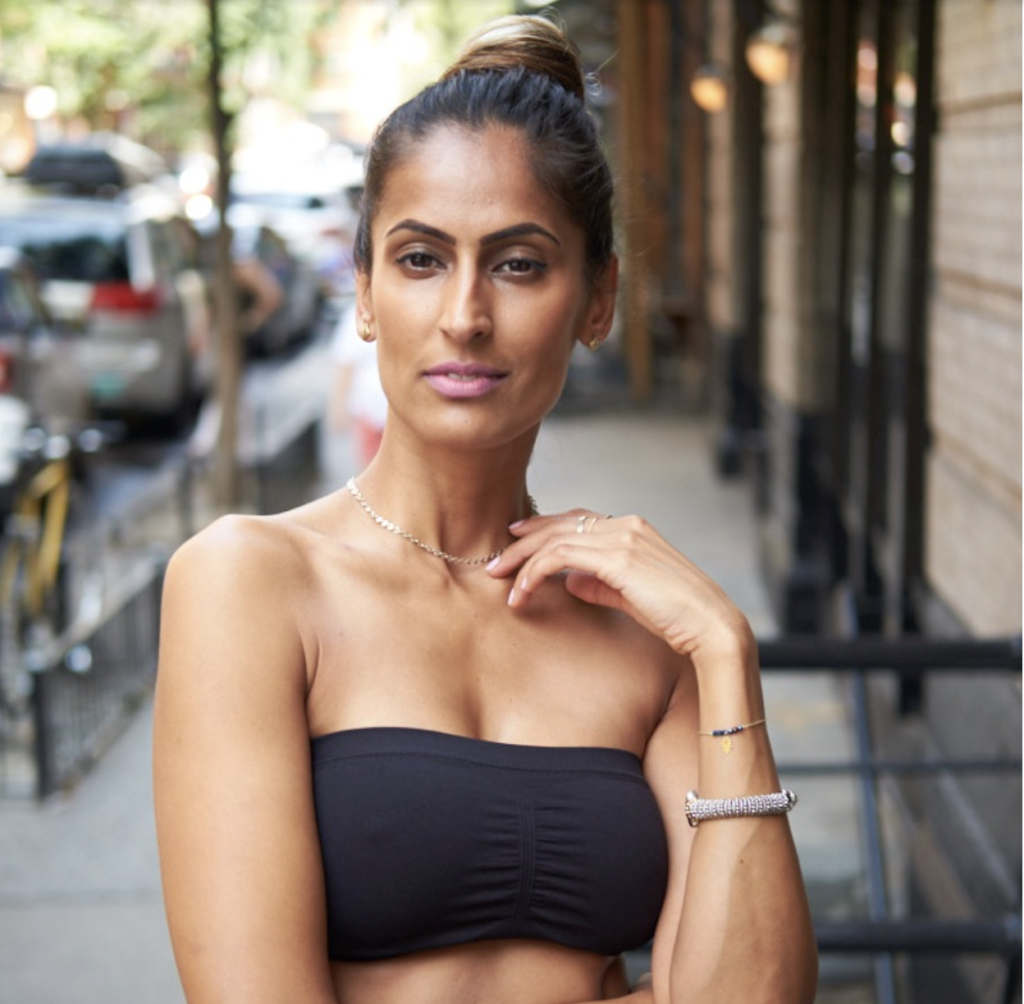
“As I mentioned earlier, going through my divorce was an incredibly difficult period in my life. I had a happy marriage, but my ex-husband and I just grew apart. There’s this universal idea that we have one soulmate and when we get married, a relationship is supposed to last forever. I don’t think there’s truth in that. People try their best to make things work and sometimes things don’t align. Divorce doesn’t mean you’re a bad person. People can fall out of love. It’s a tough concept for our culture to understand. When our culture doesn’t believe in love being an important aspect, people just think, ‘Well he has a good job, so what’s the problem?’ In my case, I heard comments like, ‘This is what happens when you marry a gora (a white man).’ This statement is far from the truth as divorce doesn’t discriminate against race, gender or color.
In the older generation, couples stayed together as a matter of duty, no matter what. Marriage was something you signed and then it became the rest of your life. But I think some people have more than one soulmate. Life is about evolving – you’ll change and grow, and your interests will too.
After my divorce, I started fiercely bringing awareness to the mistreatment many women and men face in their marriages. I didn’t personally experience this, but I know that domestic violence and emotional abuse happens in our community and I had witnessed it growing up in my culture. When I started talking about this openly, people were shocked to say the least. Some people felt that I was throwing a bad mark on our culture, but over time, many of them started understanding and acknowledging it. We can’t be afraid to expose and discuss the reasons why some relationships aren’t healthy.
Now that I’m divorced, the pressure to get married is still definitely there! The stigma towards age definitely exists, and there’s an idea that women are not worthy once we reach a certain age. It comes from an old school way of thinking, and unfortunately men and women are still raised to think that.”
On Motherhood
“After my ex-husband and I were together for a long time, we decided we were going to start a family – but it wasn’t easy for me. I’d never really wanted my own child and had wanted to adopt a girl from India. I’d grown up in Delhi living next to girls from the slums, and that left a lasting impact to want to help children who were displaced in India.
I’ll also admit that I didn’t think I’d be a good enough mom to bring my own child into the world. There were many issues with the way my older sister and I were raised, and I just had this fear of having a daughter who would go through the same things. But my husband at the time knew me and told me I didn’t know how good of a mom I could be. He was so encouraging and I’m incredibly grateful to him for that. Looking back, he was so right. I can’t imagine my life today without my daughter.
My daughter has motivated me to speak out more and make the world a better place. I try to take her everywhere I go so she sees how her mom lives her life. I want her to see that anyone can work and build a life for themselves. You don’t have to depend on a man or a man’s income. The self confidence my girl already has is incredible. Kids really do give us a chance to do things better in our lives.”

On Generational Gaps
“I think it’s important to just sit down and talk between parent and child with no defense. Try to have those uncomfortable conversations. I didn’t do them enough, and if I could go back, I would have done it more. I avoided having those conversations which then turned into a lot of rage. We need to communicate to our parents when something really matters to us. Show them your purpose and passion. Show them what you are doing and the difference you are making in other people’s lives. That will help them see that your path is full of goodness and purpose.
We also get in our own way more than anybody else does. It’s a real struggle to get past the voice in our head that is questioning what we are doing or whether we are spending our time in the best way. We need to find value and self-worth in our own work before anybody else can.”
Just for Fun
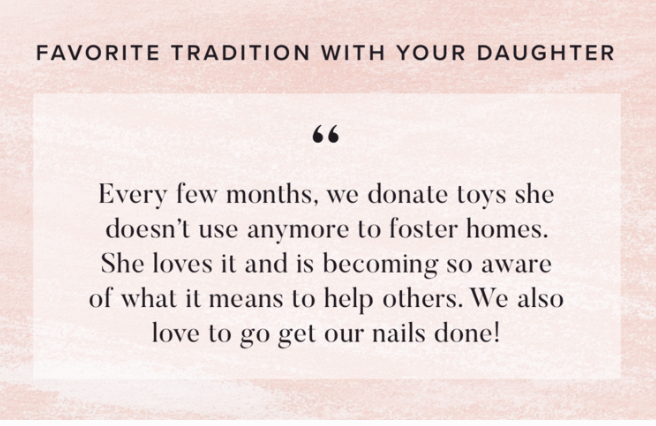
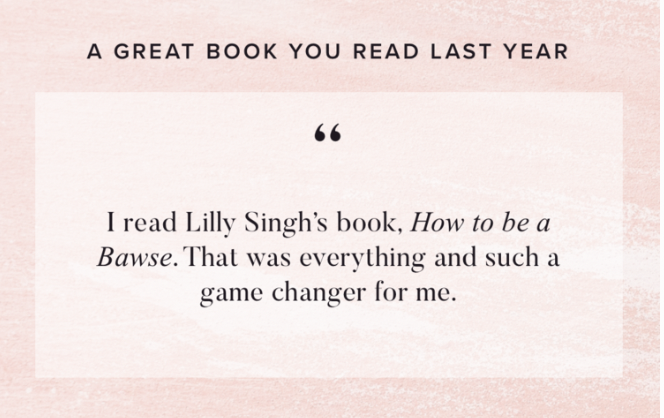
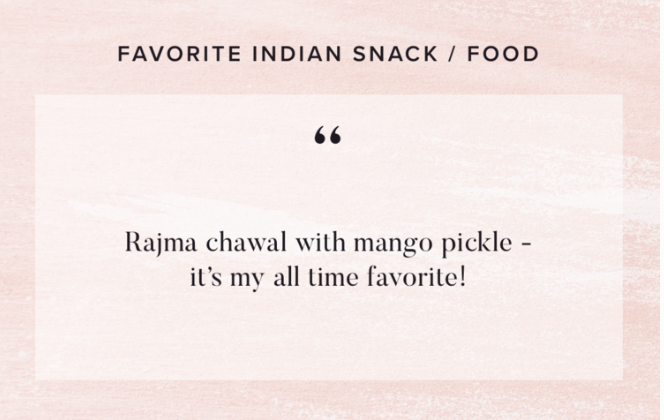
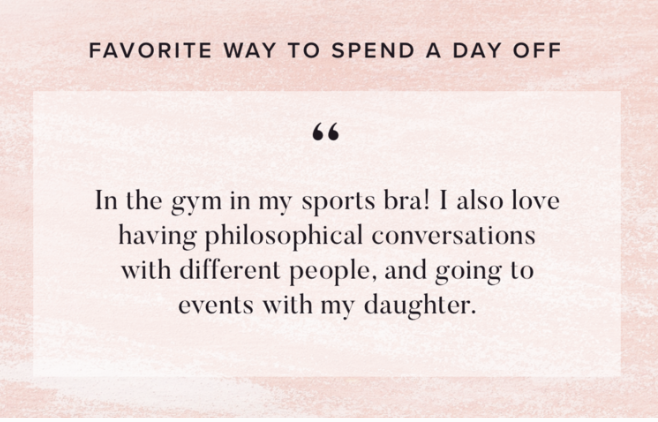
***************
Shakti Collaborative illuminates narratives of strength, choice, and culture in the South Asian community.

.jpg)


